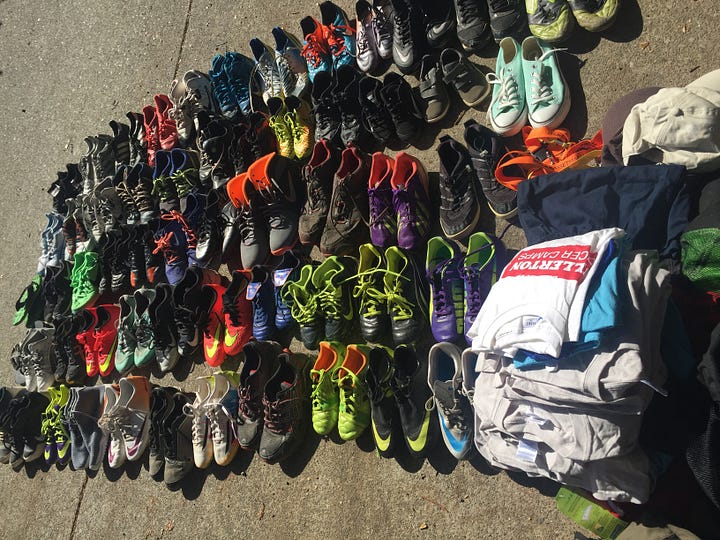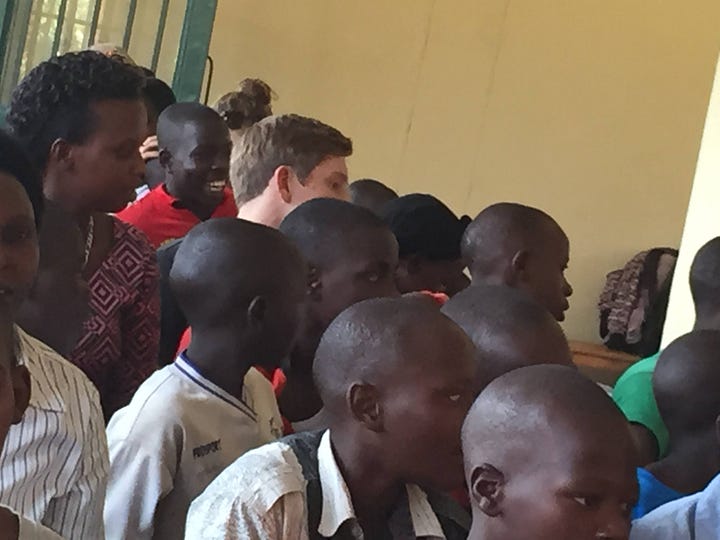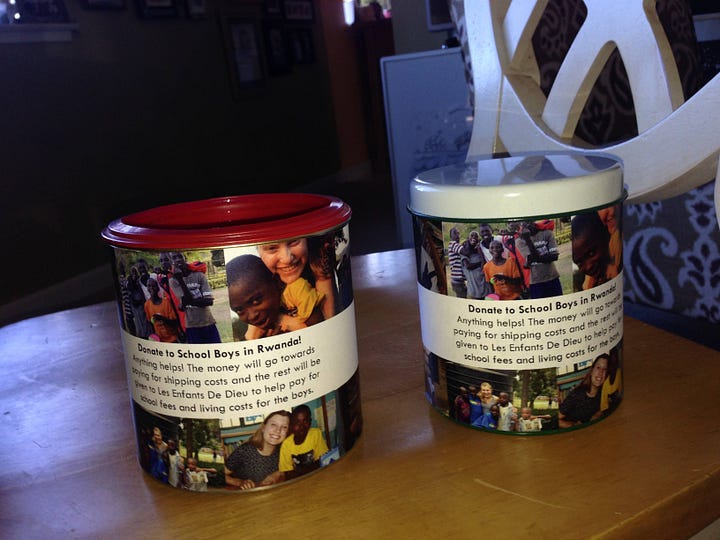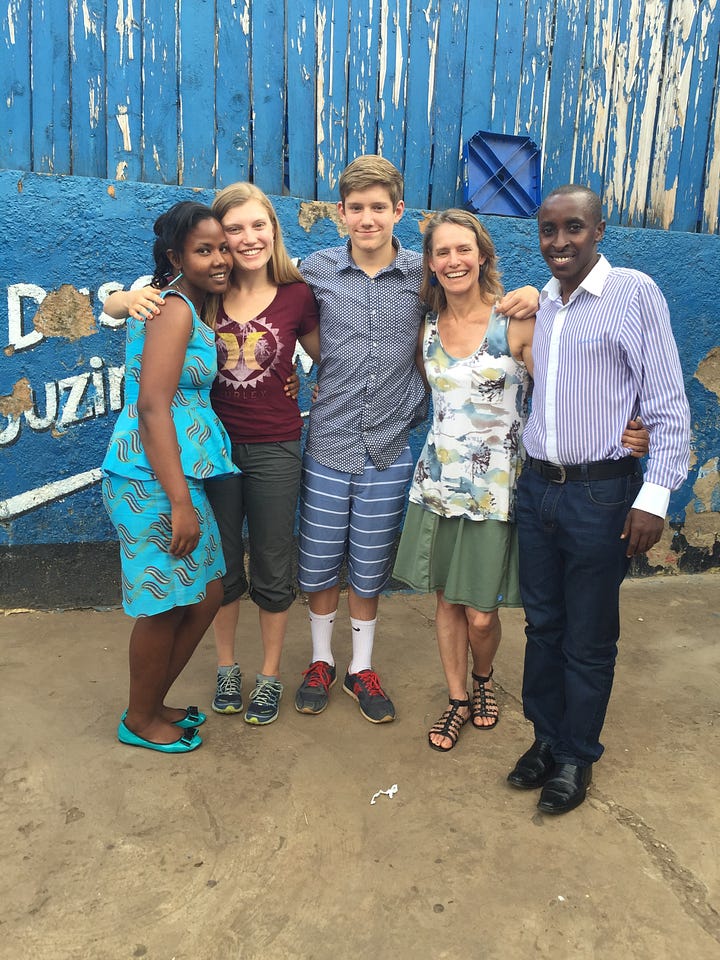This Folly is on me.
A Trip to Rwanda
Nine years ago, my kids (then ages 17 and 15) and I visited Rwanda. Knowing how fortunate we were to have the ability to make this trip, we wanted to learn about the culture and to contribute while we were there.
We read up on the history and culture of the people and places.
We spoke with a Rwandan-born friend, and timed our visit (at her suggestion) to coincide with her own family’s trip there. While it surprised me at the time that she asked us to contribute financially for her trip planning suggestions, now I see how her request allowed me to honor her time and experience.
We volunteered with a local organization nearly every day that we spent in Kigali, the capital city. Les Enfants de Dieu, now known as Empower Develop and Dignify (EDD), is an amazing residential community for boys up to age 18, many of whose families were traumatized by the 1994 genocide. My kids worked with the boys in the library and played soccer in the courtyard. I helped with fundraising.
We supported local businesses. We visited the Kigali Genocide Memorial, a tribute to many cultures around the world that have suffered mass atrocities. It stands for strengthening community resilience against division, and has created a model for peace and values education that is adapted and used internationally.
We learned a little Kinyarwanda. We took public transit. Using English, French, gestures and smiles, we connected with people each day. We dressed modestly as we saw local customs and attire, and some clothes packed remained unworn. We experienced what it’s like to be the only ones you see all day with your skin color.
We visited conservation sites for gorillas and chimpanzees, and bought art from the poachers-turned-artisans. The delicious Sorwathe tea with milk replaced my coffee habit, and we learned about sustainable agriculture and toured a tea farm.




We returned home and told everyone we knew – who only knew of Rwanda from the 20-year earlier genocide – about this amazing place and what it has done to heal from trauma. Women have played a powerful role: Rwanda tops lists for the largest representation of women in government (61% vs. a global average of 26%).
It was a life changing experience for the three of us.
But we got a lot of it wrong.
We behaved like well-intentioned, middle-class white people.
It was so hard to leave our new friends. Many a tear was shed the last time we volunteered with the boys and the amazing EDD staff. But not all were tears of joy.
After Rwanda
We didn’t think about how our visit impacted these children. One of the EDD boys articulated what many must have felt. Just like all the others who come, volunteer for a while, and promise to return, he knew we wouldn’t.
The EDD boys loved soccer. And they often played barefoot. My kids reminisced about all the fancy cleats that their friends quickly outgrew. What if we could collect and send these? And we did – three huge boxes worth.
The boys living in a Rwandan orphanage didn’t need soccer cleats. They needed shoes. Or what – to them – would have been a large donation of $1,000 that, instead, I paid for postage.
That wise Rwandan boy was right. We had every intention of staying involved after we returned home. But we didn’t.
It’s embarrassing to look back and see how oblivious we were to the ways that our visit affected the Rwandans we met.
A Trip to Cuba
So now I’m visiting Cuba, this time with my partner. We did a lot of research beforehand, and thought a lot about how to “benefit the Cuban people” during our trip. I brought two large duffels of items I’d read were needed. I asked First Hand Aid if we could carry in any medical supplies for them. (No response.)
This, too, is an amazing place. And my intentions about travel are better informed.
Doing anything “for the benefit of local people” means learning from them, advocating for them back at home, and then returning with or sending things that they say they need.
We will go home and speak for a removal of the blockade that has harshly punished the Cuban people for the actions of a few in power. (Fidel remains a hero.) We can come back again with items that matter – and are not available or affordable.
I’m still figuring out actions I can take for the Rwandans and Cubans I’ve met. But one thing is clear.
Voluntourism must be something more than a one-sided experience for those who can afford it.
I’m sure you have helped others in your own travels. Won’t you …
…and share ways you found to benefit local people? I would really love to learn from you.





